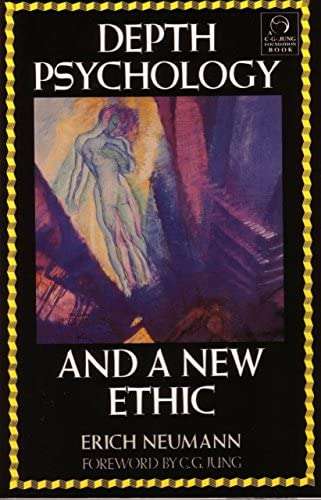I really wanted to read this book…but there was (and still is) a problem.
I don’t have the necessary background to read it. I have not read a single book by Jung and have read very little in the way of analytical psychology.
So I ventured and…nothing happened.
I except hyper-specialized language plus many references to other works that were absolutely needed to understand the text. I excepted a dense, impenetrable, indescribable, eldrich labyrinth.
What I got instead was a short down to earth bo
I really wanted to read this book…but there was (and still is) a problem.
I don’t have the necessary background to read it. I have not read a single book by Jung and have read very little in the way of analytical psychology.
So I ventured and…nothing happened.
I except hyper-specialized language plus many references to other works that were absolutely needed to understand the text. I excepted a dense, impenetrable, indescribable, eldrich labyrinth.
What I got instead was a short down to earth book about ethics.
In order to understand this book, you have to a degree having lived it, or living it.
The problem of opposites, shadow and ego, good and evil, is something that is brought down from the heavens and down to earth. Is something that you experience daily.
I had this kind of insane struggle against my shadow, I didn’t want to give in. I wanted to strive for that perfection…but every day the situation became worse. “For how much can I resist?” was frequent though “I have to give in, I have. This is a living hell.”
And yet what would happen if I would give in? The same situation in reverse. Opposites can’t be completely disintegrated. I would have to strive toward reaching my ego again.
This book explains why this reasoning is wrong. It gives you a third and more healthy way of living.
On a side note I read that some people have not understood what the book was saying about the shadow and in bringing it to reality; I quote the book directly.
“Man learns more than simply to live on tolerable terms with himself; he must actually learn to live with his sin-though this, of course, must not be misunderstood as meaning to live “in” his sin.
Great book I will read it again in the future; when I will be better read in this field of stud
…more
Depth Psychology and a New Ethic
Details
The modern world has witnessed a dramatic breakthrough of the dark, negative forces of human nature. The “old ethic,” which pursued an illusory perfection by repressing the dark side, has lost its power to deal with contemporary problems. Erich Neumann was convinced that the deadliest peril now confronting humanity lay in the “scapegoat” psychology associated with the old ethic. We are in the grip of this psychology when we project our own dark shadow onto an individual or group identified as our “enemy,” failing to see it in ourselves. The only effective alternative to this dangerous shadow projection is shadow recognition, acknowledgement, and integration into the totality of the self. Wholeness, not perfection, is the goal of the new ethic.
Although this book was written some time ago, and the world is changing fast, nevertheless the topic is very relevant today. Erich Neumann looks at the possibility of a new set of ethics developing in society, one that requires a lot more conscious action on the part of the individual. He suggests that this new ethic is appearing in more and more cases and will gradually replace the old ethic which most great religions had developed…. the new ethic is the next stage in our development.
The only problem I had with this book is the language used. It was originally written in German and has obviously been translated by a German speaker because the language is often unnecessarily complicated.
Despite this, I found the book very interesting… and hopeful that amongst all the current chaos something is developing in a positive direction, even if it may be difficult to see at the moment.
The modern world has witnessed a dramatic breakthrough of the dark, negative forces of human nature. The “old ethic,” which pursued an illusory perfection by repressing the dark side, has lost its power to deal with contemporary problems. Erich Neumann was convinced that the deadliest peril now confronting humanity lay in the “scapegoat” psychology associated with the old ethic. We are in the grip of this psychology when we project our own dark shadow onto an individual or group identified as our “enemy,” failing to see it in ourselves. The only effective alternative to this dangerous shadow projection is shadow recognition, acknowledgement, and integration into the totality of the self. Wholeness, not perfection, is the goal of the new ethic.
“synopsis” may belong to another edition of this title.
